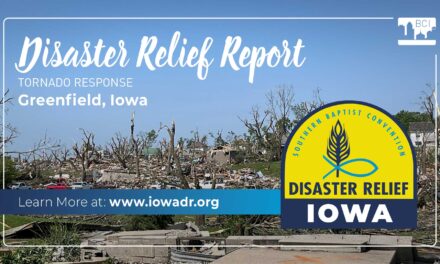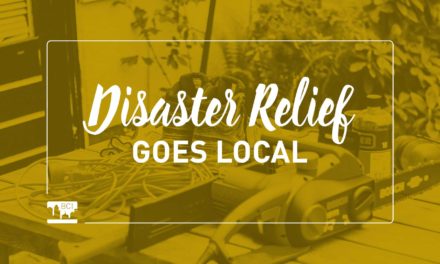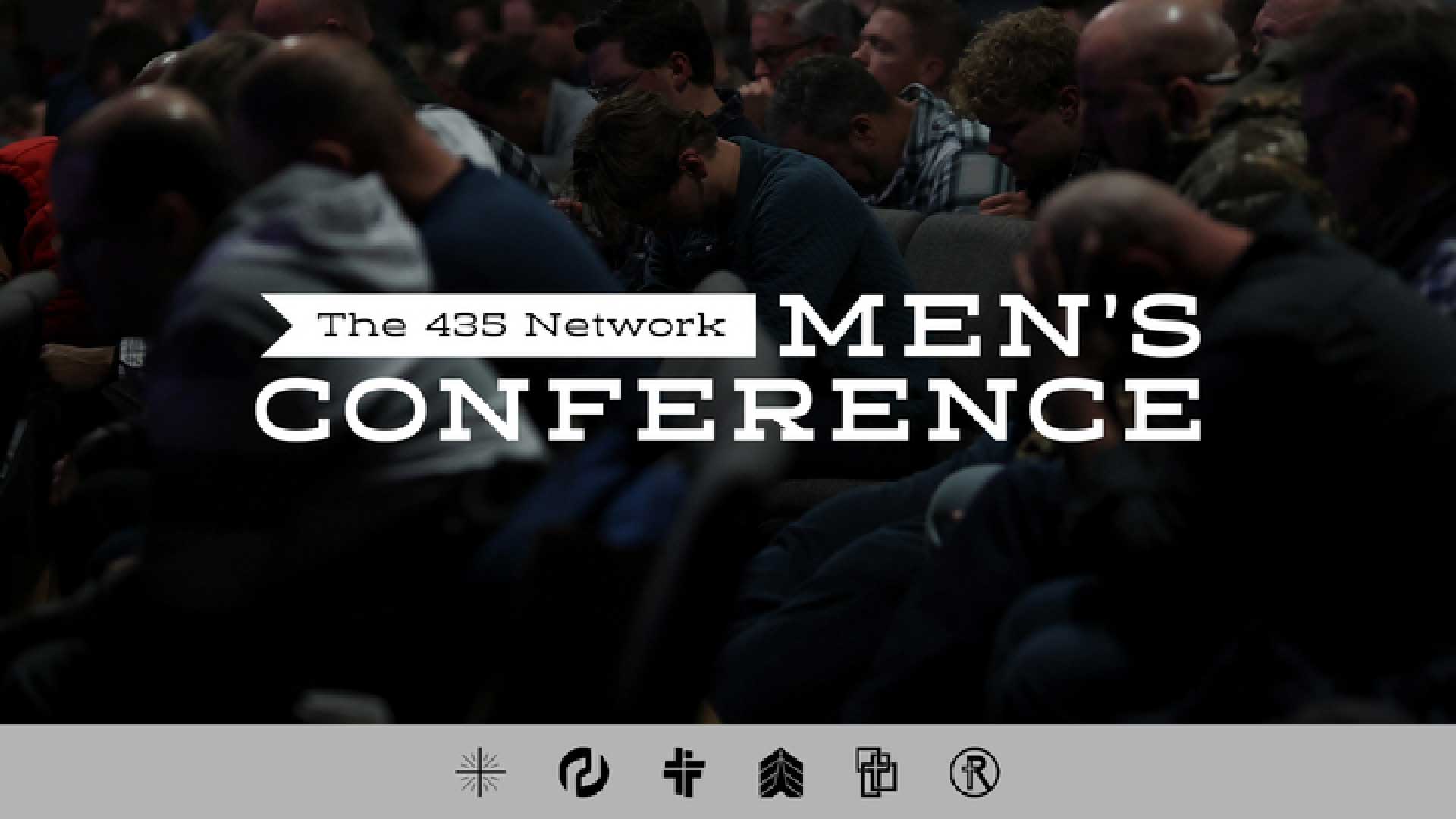Editor’s note: Kentucky Baptist Convention Disaster Relief Director Coy Webb just returned from Iraq where he got a close-up look at the human toll Islamic State terrorists have inflicted. This is his account of the hardships that people there continue to face.

Glenn Hickey, a disaster relief volunteer from First Baptist Church of Monticello, holds a baby for a mother who was attending a medical clinic at a refugee center in a warehouse in Erbil, Iraq, where a large group of refugees was living. A Kentucky Baptist children’s trauma team took care of older siblings.
In the spring of 2014, an organized militia set out to create a form of Islamic government known as a caliphate in the Middle East. As spring turned to summer, this Islamic State (ISIS) destroyed the lives of hundreds of thousands of Syrian Christians, Iraqi believers, Yazidis and various sects of Shia Muslims. Over 1 million were driven from their homes, and thousands of others were slaughtered or enslaved as this ruthless caliphate swept across Syria and Iraq.
Thousands upon thousands fled into the Kurdistan region of northern Iraq to places called Erbil and Dohuk. They took refuge in parks, stadiums, abandoned buildings, parking garages, shelters and tents. Months later, many of them continue to live in camps and refugee centers with little hope of ever returning home.
I have just returned from northern Iraq where I served with a Kentucky Baptist Disaster Relief medical and children’s trauma team. The team was comprised of Dr. Tom Ashburn of Barbourville, Glenn Hickey of Monticello, Stacy Nall of Shelbyville, Pat Callan of Sparta, Debra Kramer of Henderson, Karen Smith of Shepherdsville, and myself, Coy Webb, Kentucky Baptist DR director. We spent nine days in northern Iraq seeking to bring help, healing and hope to those displaced by war and violence.
As we ministered among the refugees, they only asked one thing of us, “Will you please tell our story to the world?”
Life as a refugee is difficult. In the winter, they endured snowstorms and cold temperatures. Now, in the summer, the heat can soar above 130 degrees Fahrenheit and the sun is scorching. Multiple families are forced to share very limited water sources, bathrooms and kitchen areas. Every day is a battle to feed your family and survive.








